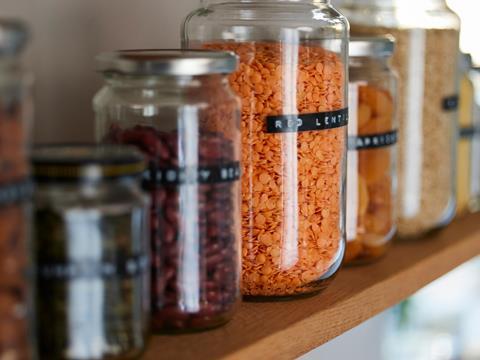
A consumer research project run by City to Sea and Re by Beauty Kitchen claims to have revealed a general interest in circular packaging systems for retail products – proposing prefilled returnable packaging as the most convenient and popular option.
The research was partially funded by UKRI’s Smart Sustainable Plastic Packaging initiative, which aims to encourage reuse amongst consumers and guide brands and retailers towards packaging reduction targets. It aims to provide insight into consumers’ current perceptions of pre-filled returnable packaging, as well as motivations and barriers regarding its use.
According to the report, 69% of respondents are likely or very likely to try out reusable packaging solutions if they are made available in the shops they visit, but do not yet have access to them. 53% claimed that they would be more likely to buy from a brand selling their product in prefilled returnable packaging, with the figure rising to 84% amongst those who had purchased reusable packaging in the past.
Furthermore, six in ten respondents reported that value for money was the biggest influence on their choice of product, especially in light of the UK’s cost-of-living crisis. However, half would make an initial purchase and return the packaging after use if a discount was involved. Supermarket reward points also proved to be a popular motivation, but opinions differed amongst target segments, so the report calls for trials to test its effectiveness.
Prefilled returnable packaging is expected to override any pain points consumers would experience with in-store refill models, including convenience and hygiene concerns. It would not require users to adjust their usual shopping routine too drastically, the report asserts, and would therefore see more uptake than an immediate refill solution.
It is also said to satisfy growing consumer demand for packaging that reduces space, lowers carbon footprints, and reduces single-use plastic consumption, with consumers reportedly perceiving products in prefilled returnable packaging to be more environmentally friendly, but relies on retailers and brands to make the packaging available.
With Extended Producer Responsibility on the horizon, the report goes on to advise retailers and brands on the best methods of meeting their waste reduction targets and saving money. This includes recommendations for achieving success in first-time trials and boosting packaging return rates, such as selling the prefilled packs in the same location as single-use alternatives and integrating return processes into the established shopping experience.
“This is a revolutionary approach, by collaborating on a full-system solution brands and retailers can effectively scale-up an effective reuse model that avoids the consumer barriers,” said Jane Martin, head of Development at City to Sea. “It is clear to everyone that consumers want to shop more sustainably, our climate desperately needs us to but, to date the missing link has been the innovative solution – the future is prefill.”
“Most investment by brands and retailers to date has been in reducing packaging or making it more recyclable,” continued Re co-founder Stuart Chidley. “Trials to date on reuse and refill have been limited and isolated, lacking collaboration and a longer-term vision. This report provides further evidence of a frustrated consumer demand and the need for stakeholder collaboration to accelerate the transition to reuse.
“Ongoing concerns about the commercial viability of reuse mean few brands have set meaningful targets or timescales to roll pilots out more widely. This will only be solved through innovation, cross-industry collaboration and increased efficiency to unlock economies of scale.
“Re has set out to address these issues with a vision for a cross category, professionally refillable, reusable packaging platform that is consumer centric and centres around smart standardised returnable packaging-as-a-service to reduce the cost and risk barriers for stakeholders.”
Tesco previously conducted a trial with Loop to test the uptake of prefilled returnable packaging, but identified the need to shift consumer behaviour for a future rollout to see more success.
Conversely, the Refill Coalition was formed by UK retailers Marks & Spencer, Morrisons, Ocado, Waitrose & Partners and the supply chain solutions company CHEP last year. It hoped to co-design and scale an end-to-end refill solution for in-store trials and testing in bulk home deliveries.
More recently, Nestlé’s Jodie Roussell, Global Public Affairs Lead for Packaging and Sustainability, and Antje Shaw, Global Packaging Sustainability Manager, re-examined some of the roadblocks faced by the company in its refill and reuse trials, including product spoilage from hot weather and processes considered inconvenient by consumers.
If you liked this article, you might also enjoy:
McKinsey on whether or not on-pack sustainability claims affect consumer spending














No comments yet